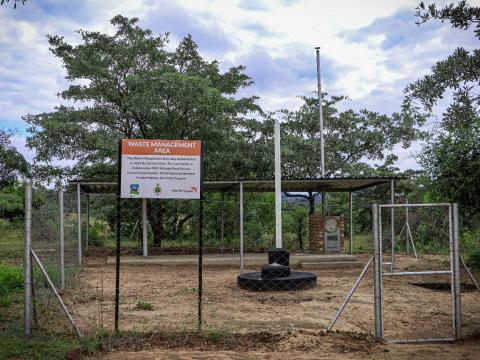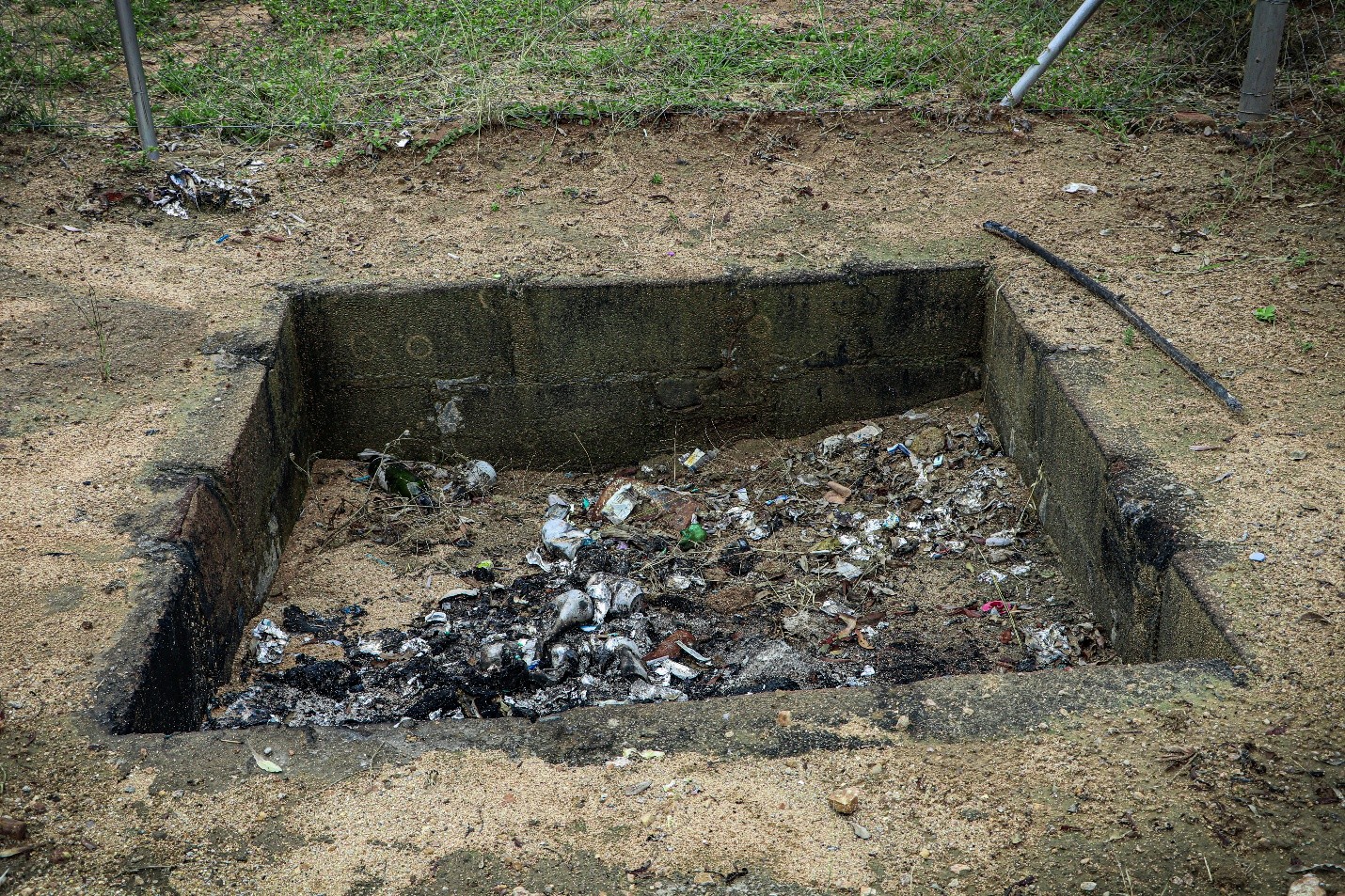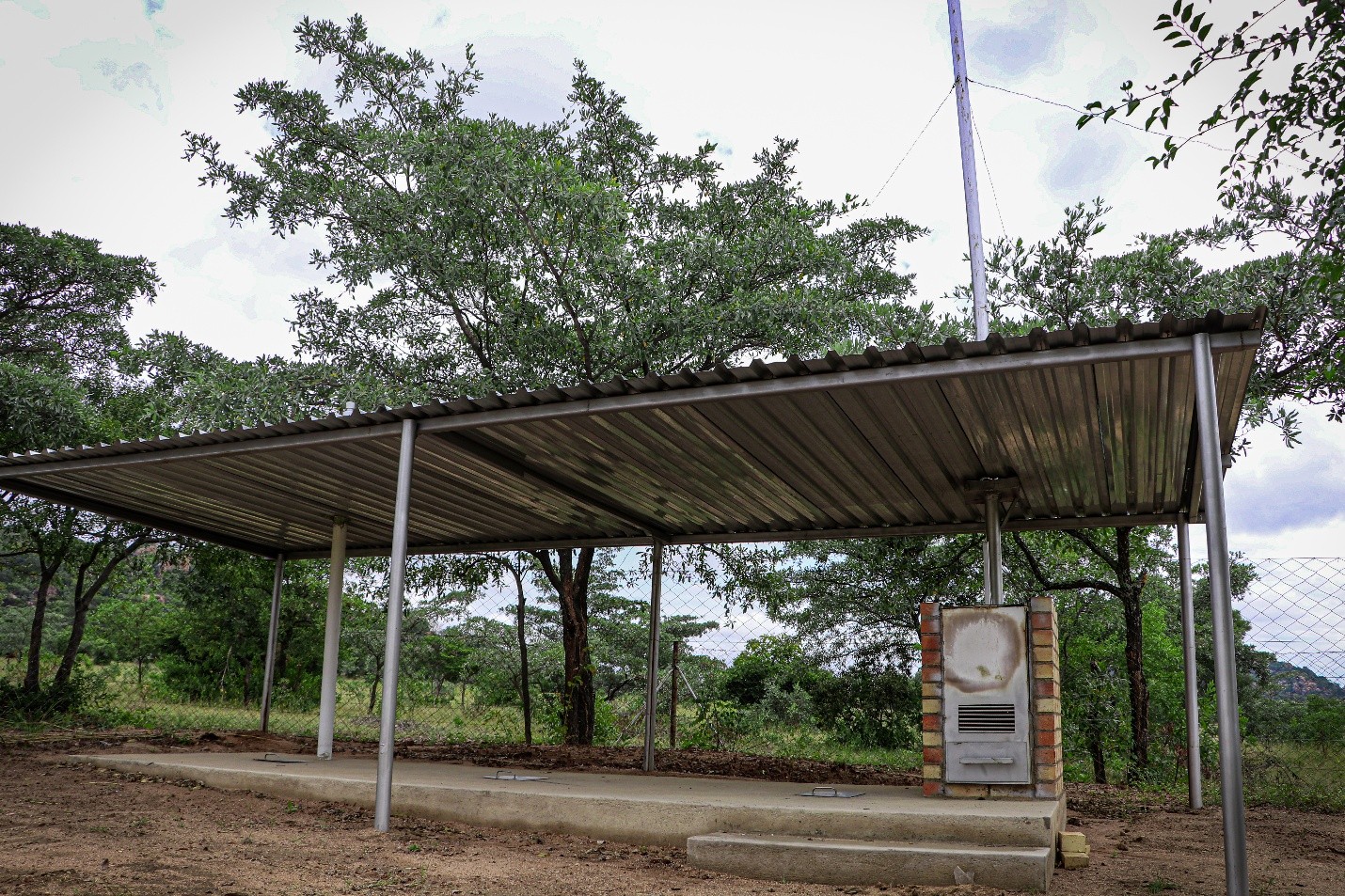Safer Healthcare: How Silozwe Clinic in Zimbabwe Overcame Medical Waste Challenges

By Isheunesu Gwasha (Programs Communications Officer)
Effective waste management in clinics is crucial for maintaining a safe and healthy environment. It encompasses the systematic handling, careful segregation, treatment, and responsible disposal of all types of waste generated during medical activities. As highlighted in a report by the World Health Organization (WHO), an alarming 16 billion injections are used globally each year, yet a number of needles and syringes are not disposed properly, resulting in substantial health risks.
For many years, Silozwe Clinic faced considerable challenges in managing its medical waste. To address this issue, the clinic depended on an external transport service to carry its waste to Maphisa Hospital for disposal. Unfortunately, this process often resulted in delays, creating an accumulation of hazardous materials on-site. Furthermore, the transport of waste increased the risk of spills and breakages, posing serious health hazards not only to the dedicated clinic staff but also to vulnerable patients seeking care.
Also, before the construction of a new dedicated waste management area, the clinic depended on off-site clinical waste disposal methods, which posed significant environmental challenges. The air pollution risks stemming from the incineration (burning) of clinical waste made these practices less sustainable and far less desirable.
In light of these pressing concerns, World Vision Zimbabwe stepped in with a proactive approach. Collaborating with the Ministry of Health and Child Care and the Matobo Rural District Council, and with vital funding from World Vision Switzerland, they launched a comprehensive initiative to improve waste management practices at Silozwe Clinic. This strategic partnership aimed to alleviate the financial burden of expensive transportation costs while ensuring that waste is handled and disposed properly following medical procedures. Through these efforts, they sought to create a cleaner, safer environment for both patients and healthcare providers alike.

Angela Ndlovu, the Environmental Health Technical Officer (EHT), highlighted the transformative impact of World Vision Zimbabwe’s intervention on waste management practices at Silozwe Clinic. She stated, "This initiative has enhanced the safety of our employees and patients by greatly minimizing the risk of sharp injuries. It has also lessened the financial burden associated with both direct and indirect medical treatments. Furthermore, improved waste management has mitigated the risk of exposure to blood-borne pathogens and substantially reduced the occurrence of hospital-acquired infections."
The establishment of the waste management area was a true demonstration to community collaboration. The residents of Silozwe dedicated their efforts to this cause, generously providing essential materials such as bricks, quarry stones, pit and river sand, as well as their labor and expertise.
Today, the newly designed waste management area features distinct, secure sections for various types of waste, including general, ottoway, sharps, and a specialized furnace designated for the incineration process. Once waste is safely burned in the furnace, the remaining ashes are disposed off in a designated protected pit, ensuring an environmentally responsible approach to waste management that prioritizes both health and safety.

"As a clinic, we would like to extend our heartfelt gratitude to WV Zimbabwe and the Ministry of Health and Child Care for their invaluable support in safeguarding the wellbeing of health workers patients and the environment. This initiative has proven essential in mitigating health risks that often arise from the inadequate management of medical waste,” Angela remarked.
In clinics, prioritizing waste management is vital, as the improper handling of clinical waste can pose dangers to both individuals and the environment. Establishing a comprehensive and effective waste management system is critical for ensuring the safe and responsible disposal of clinical waste, ultimately protecting public health and preserving our surroundings.